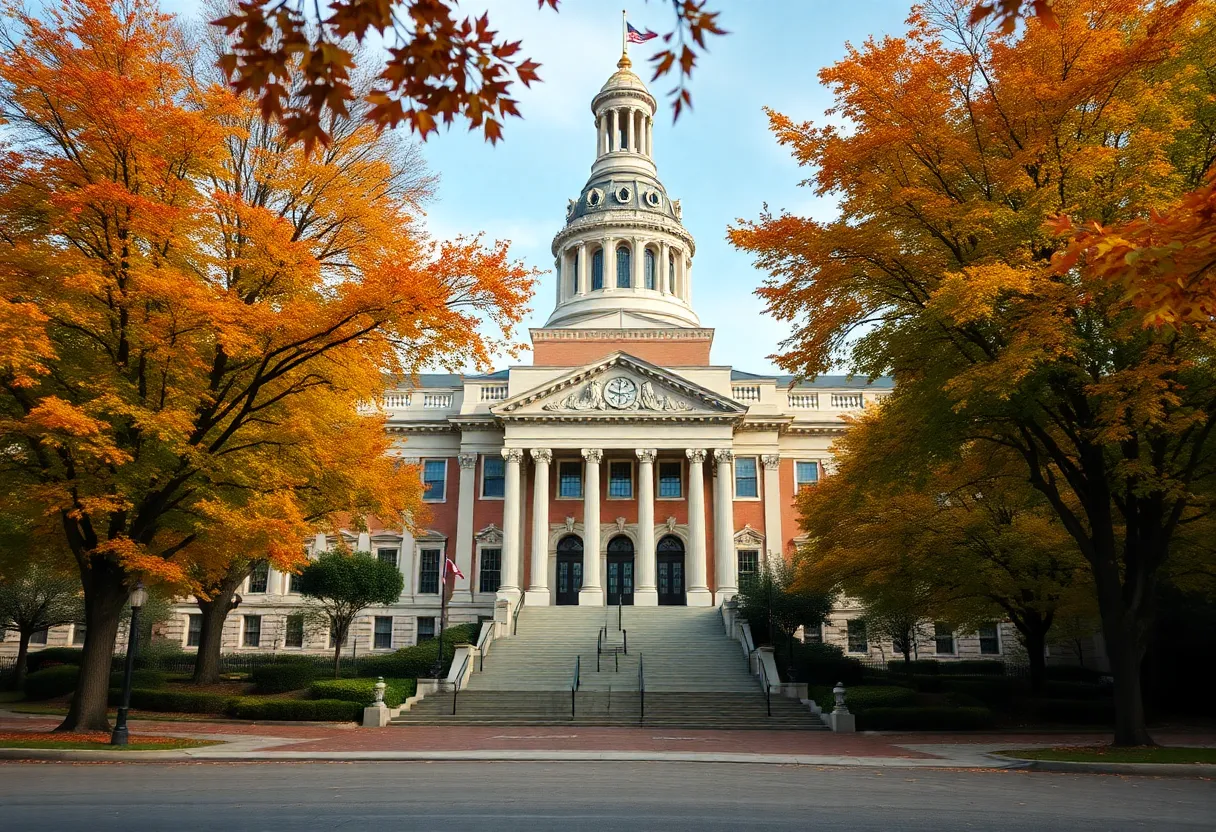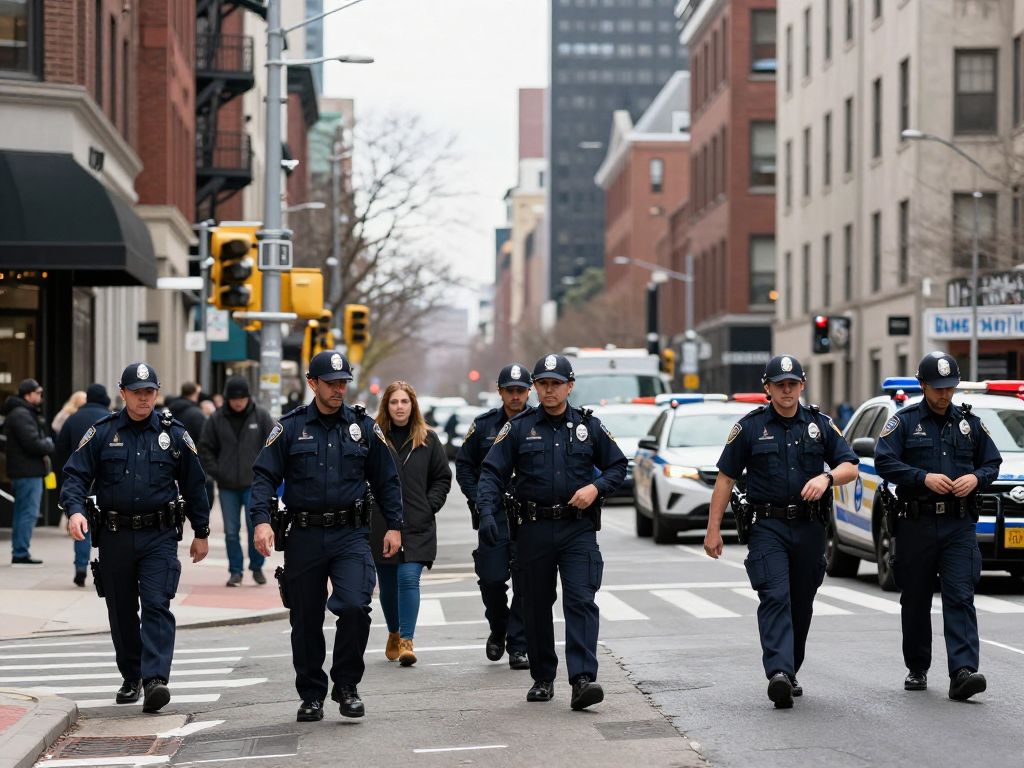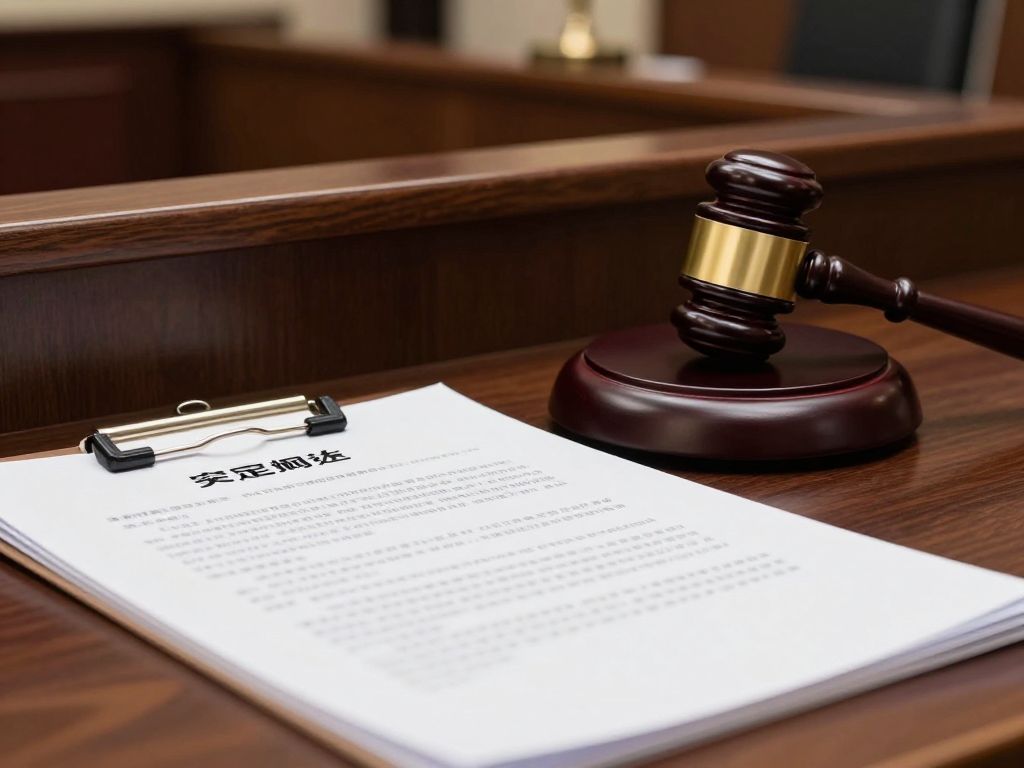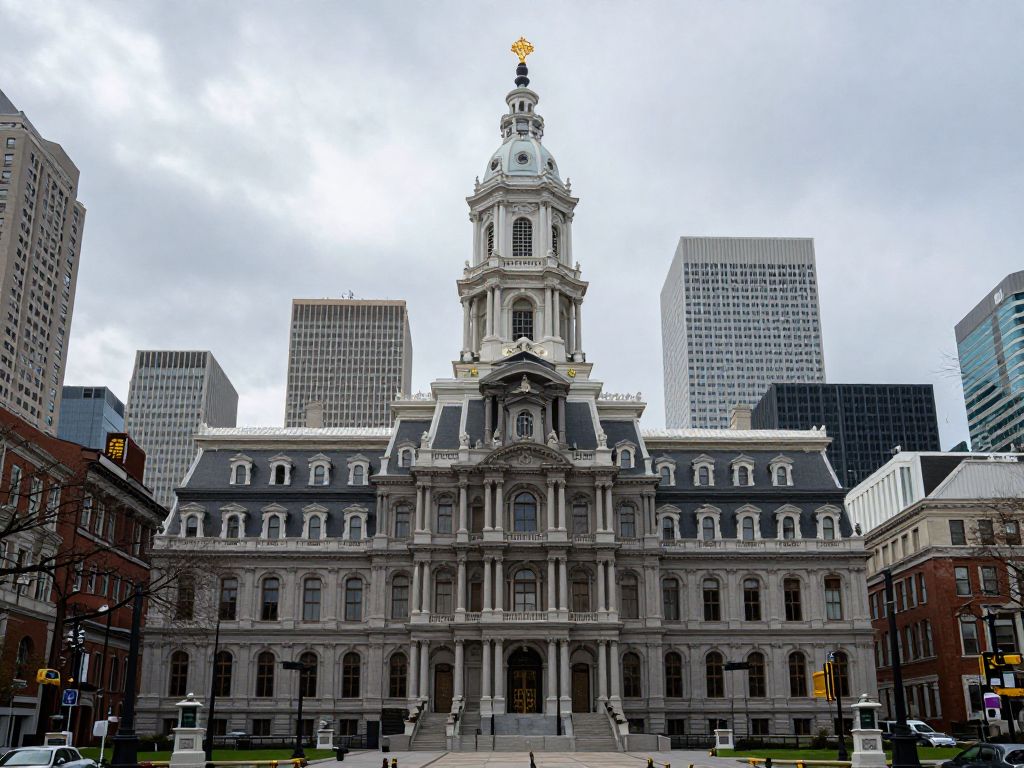Boston, September 23, 2025
News Summary
Boston Mayor Michelle Wu will seek reelection without any challengers, as announced by the city’s election department. In the preliminary election, Wu secured enough votes to remain the only name on the November ballot. This will be her second four-year term, following her historic election as the first Asian and female mayor of the city. With no competitive mayoral race, focus now shifts to City Council contests and civic engagement initiatives to maintain voter turnout.
Boston
Boston Mayor Michelle Wu will run unopposed in her reelection bid. The city’s election department announced that no challengers had garnered enough votes to advance to the general election, leaving Wu as the only mayoral name on the November ballot.
Key developments
Michelle Wu is the first Asian and female mayor of Boston and is seeking a second four-year term. The preliminary election produced vote totals that left no candidate meeting the threshold needed to challenge the incumbent in November. Jessica DaRosa, the third-place finisher in the preliminary election, did not receive the 3,000 votes required to qualify for the November ballot. Josh Kraft, a nonprofit leader and son of Patriots owner Robert Kraft, was expected to challenge Wu but withdrew after losing the preliminary election.
The partial recount showed Wu receiving an additional 461 votes, bringing her total to 66,859. Kraft’s vote total increased by 157, reaching 21,481, while Cappucci garnered an additional 17 votes, bringing his total to 2,091.
Immediate implications
With no opponent on the November ballot, attention is shifting to City Council contests and to efforts aimed at maintaining voter engagement. Wu thanked the nearly 94,000 voters who participated in the preliminary election. Political experts anticipate that voter turnout may decline in November due to the absence of competitive mayoral races, leaving City Council seats as the only contested races.
Campaign context and reactions
Josh Kraft had invested millions in his campaign and was critical of Wu’s housing policies. DaRosa advocated for affordable housing, public safety, and youth empowerment during his campaign. Domingos DaRosa, who called for a recount, attributed his loss to a lack of visibility and funding in the campaign. DaRosa criticized the financial dynamics of local politics, suggesting that money often overshadows genuine community efforts.
Political science professor Erin O’Brien noted that uncontested races are not ideal for democracy but acknowledged Wu’s strong support in the preliminary election. DaRosa plans to run for mayor again in 2029, expressing concerns about the implications of this election cycle on future civic engagement.
Legal and enforcement background
Boston’s status as a sanctuary city has led to friction with federal authorities. The U.S. Department of Justice filed a lawsuit against Wu and the city over sanctuary policies interfering with immigration enforcement. During the preliminary election, the Department of Homeland Security conducted arrests as part of a crackdown in Massachusetts.
Historical note
The last time a Boston mayor ran unopposed was Thomas Menino in 1997.
What comes next
With the mayoral race effectively decided by the preliminary results, campaigns and civic groups are expected to focus on turnout for City Council races and on broader civic engagement initiatives ahead of the November general election. Observers will be watching whether the absence of a mayoral contest affects overall participation and whether challengers regroup for future cycles.
Frequently Asked Questions
Will Michelle Wu have an opponent in the November election?
Boston Mayor Michelle Wu will run unopposed in her reelection bid.
Did any candidate meet the threshold to advance to the general election?
The city’s election department announced that no challengers had garnered enough votes to advance to the general election.
Who had been expected to challenge Wu and what happened?
Josh Kraft, a nonprofit leader and son of Patriots owner Robert Kraft, was expected to challenge Wu but withdrew after losing the preliminary election.
Did Jessica DaRosa qualify for the November ballot?
Jessica DaRosa, the third-place finisher in the preliminary election, did not receive the 3,000 votes required to qualify for the November ballot.
How many votes did candidates have after the partial recount?
The partial recount showed Wu receiving an additional 461 votes, bringing her total to 66,859. Kraft’s vote total increased by 157, reaching 21,481, while Cappucci garnered an additional 17 votes, bringing his total to 2,091.
How many voters participated in the preliminary election?
Wu thanked the nearly 94,000 voters who participated in the preliminary election.
When was the last uncontested Boston mayoral race?
The last time a Boston mayor ran unopposed was Thomas Menino in 1997.
Has the federal government taken action related to Boston’s policies?
The U.S. Department of Justice filed a lawsuit against Wu and the city over sanctuary policies interfering with immigration enforcement. During the preliminary election, the Department of Homeland Security conducted arrests as part of a crackdown in Massachusetts.
{
“@context”: “https://schema.org”,
“@type”: “FAQPage”,
“mainEntity”: [
{
“@type”: “Question”,
“name”: “Will Michelle Wu have an opponent in the November election?”,
“acceptedAnswer”: {
“@type”: “Answer”,
“text”: “Boston Mayor Michelle Wu will run unopposed in her reelection bid.”
}
},
{
“@type”: “Question”,
“name”: “Did any candidate meet the threshold to advance to the general election?”,
“acceptedAnswer”: {
“@type”: “Answer”,
“text”: “The city’s election department announced that no challengers had garnered enough votes to advance to the general election.”
}
},
{
“@type”: “Question”,
“name”: “Who had been expected to challenge Wu and what happened?”,
“acceptedAnswer”: {
“@type”: “Answer”,
“text”: “Josh Kraft, a nonprofit leader and son of Patriots owner Robert Kraft, was expected to challenge Wu but withdrew after losing the preliminary election.”
}
},
{
“@type”: “Question”,
“name”: “Did Jessica DaRosa qualify for the November ballot?”,
“acceptedAnswer”: {
“@type”: “Answer”,
“text”: “Jessica DaRosa, the third-place finisher in the preliminary election, did not receive the 3,000 votes required to qualify for the November ballot.”
}
},
{
“@type”: “Question”,
“name”: “How many votes did candidates have after the partial recount?”,
“acceptedAnswer”: {
“@type”: “Answer”,
“text”: “The partial recount showed Wu receiving an additional 461 votes, bringing her total to 66,859. Kraft’s vote total increased by 157, reaching 21,481, while Cappucci garnered an additional 17 votes, bringing his total to 2,091.”
}
},
{
“@type”: “Question”,
“name”: “How many voters participated in the preliminary election?”,
“acceptedAnswer”: {
“@type”: “Answer”,
“text”: “Wu thanked the nearly 94,000 voters who participated in the preliminary election.”
}
},
{
“@type”: “Question”,
“name”: “When was the last uncontested Boston mayoral race?”,
“acceptedAnswer”: {
“@type”: “Answer”,
“text”: “The last time a Boston mayor ran unopposed was Thomas Menino in 1997.”
}
},
{
“@type”: “Question”,
“name”: “Has the federal government taken action related to Boston’s policies?”,
“acceptedAnswer”: {
“@type”: “Answer”,
“text”: “The U.S. Department of Justice filed a lawsuit against Wu and the city over sanctuary policies interfering with immigration enforcement. During the preliminary election, the Department of Homeland Security conducted arrests as part of a crackdown in Massachusetts.”
}
}
]
}
Quick reference table
| Item | Detail |
|---|---|
| Mayoral status | Boston Mayor Michelle Wu will run unopposed in her reelection bid. |
| Incumbent | Michelle Wu is the first Asian and female mayor of Boston and is seeking a second four-year term. |
| Preliminary voters | Nearly 94,000 (Wu thanked the nearly 94,000 voters who participated in the preliminary election.) |
| Vote threshold to qualify | 3,000 votes required to qualify for the November ballot. |
| Jessica DaRosa | Jessica DaRosa, the third-place finisher in the preliminary election, did not receive the 3,000 votes required to qualify for the November ballot. |
| Partial recount totals | The partial recount showed Wu receiving an additional 461 votes, bringing her total to 66,859. Kraft’s vote total increased by 157, reaching 21,481, while Cappucci garnered an additional 17 votes, bringing his total to 2,091. |
| Historical precedent | The last time a Boston mayor ran unopposed was Thomas Menino in 1997. |
| Federal actions | The U.S. Department of Justice filed a lawsuit against Wu and the city over sanctuary policies interfering with immigration enforcement. During the preliminary election, the Department of Homeland Security conducted arrests as part of a crackdown in Massachusetts. |
Deeper Dive: News & Info About This Topic
HERE Resources
Boston Mayor Michelle Wu Runs Unopposed for Reelection
BPDA Approves 204-Unit Housing Development in Hyde Park
Boston Reviews City Job Background Check Policies
Boston’s Mass. and Cass Area Shows Signs of Change Amid Concerns
Monica Cannon-Grant Pleads Guilty to Nonprofit Fraud Charges
District 7 Preliminary Election Results Recount Confirmed
Josh Kraft Suspends Boston Mayor Campaign Following Primary Loss
District 7 City Council Race Recount Confirms Results
Boston City Hall Faces Recount Delay After Water Main Break
Fall Festivals in Massachusetts: A Guide to Seasonal Fun
Additional Resources
- WCVB: Boston Mayor Wu Unopposed in November Election
- AP News: Michelle Wu and Boston Mayoral Race
- Boston Herald: City Hall Settlement for Wrongful Arrests
- MassLive: Wu’s Pitch to Boston Business Leaders
- Boston Herald: Wu to Run Unopposed After Recount
- Wikipedia: Boston
- Google Search: Michelle Wu
- Google Scholar: Boston politics
- Encyclopedia Britannica: Boston mayoral elections
- Google News: Boston mayor

Author: STAFF HERE BOSTON WRITER
The BOSTON STAFF WRITER represents the experienced team at HEREBoston.com, your go-to source for actionable local news and information in Boston, Suffolk County, and beyond. Specializing in "news you can use," we cover essential topics like product reviews for personal and business needs, local business directories, politics, real estate trends, neighborhood insights, and state news affecting the area—with deep expertise drawn from years of dedicated reporting and strong community input, including local press releases and business updates. We deliver top reporting on high-value events such as Boston Marathon, Head of the Charles Regatta, and Boston Harborfest. Our coverage extends to key organizations like the Greater Boston Chamber of Commerce and Associated Industries of Massachusetts, plus leading businesses in finance, biotech, and insurance that power the local economy such as Fidelity Investments, Biogen, and Liberty Mutual Insurance. As part of the broader HERE network, we provide comprehensive, credible insights into Massachusetts's dynamic landscape.





